One-way video interviews, aka asynchronous interviews, are becoming common practice at some companies. If you don’t know what they are—essentially, businesses ask potential job candidates to record themselves answering a series of interview questions for their pre-screening process.
However, far from everybody is a fan of this new workplace trend. Some people want to make their feelings about it abundantly clear. Case in point, one redditor went online to share how they got back at a company that had embraced the trend. Scroll down for the story in full.
Some companies are embracing one-way video interviews. However, this new trend isn’t without its critics
Image credits: Antoni Shkraba (not the actual photo)
One job applicant shared how they concocted a small revenge plan to show their disdain for these types of interviews
Image credits: CoWomen (not the actual photo)
There are some issues with the new trend that might put off some qualified applicants
The long and short of it is that if you’re asked to do a one-way video interview, the company you’re applying to work at is going to have a list of instructions for you to follow. But broadly speaking, you’ll use your computer or smartphone camera to record yourself answering a list of questions that you get.
Later, once you’ve submitted the video, a member of that company’s recruitment team is going to review it. They’ll then decide whether or not you advance to the next stage in the hiring process. Usually, the next step is a more traditional type of interview, whether remote or in person.
Though, keep in mind that every company’s hiring practices can differ quite a lot. Some companies only require a single interview from you. Others have rounds and rounds of aptitude tests and interviews with key members of the business.
Some people are split about the use of one-way video interviews, however. For one, they can be quite awkward when you’re talking to your screen instead of a real live human being.
Another problem is that far from everyone is used to filming themselves or talking in front of a camera. Even someone with the right qualifications and skills can leave a poor impression when required to take part in an interview that has a completely different format than they’re used to.
There’s another point of contention to consider, too. For many businesses, these asynchronous interviews are a way to save time during the recruitment process. They can schedule a whole bunch of one-way video interviews and then review them in bulk later.
However, some job candidates might feel offended by this. In short, candidates want to be treated with politeness and respect. One way to do this is to sit down with them and talk to them in person. If someone feels like they’re doing a one-way video interview only because the company is looking to save costs and is following recruitment and workplace trends, they might lose some of their excitement for the position.
Image credits: Mizuno K (not the actual photo)
These sorts of interviews might save time, but they pose other challenges for employers, too
The reality is that these days, many businesses hire people from all over the world. Scheduling live interviews when you have to account for different time zones becomes a nightmare. So, asynchronous interviews are one way to get around this problem. They also provide some deeper insights into the candidate’s character and values that go beyond just their CV.
However, there are downsides to this approach. Not just for the candidates but for the employers, too. Asynchronous interviews are quite limited without two-way interactions. That means that the recruiters can’t get a real feel for the interviewees’ soft skills and personality. There’s always the danger that someone who’s a great fit for the position might get filtered before they get to an in-person interview.
Moreover, there’s the question of (in)authenticity. You can usually film yourself answering the interview questions as many times as you want. That means that someone can put together some very scripted answers and practice them until they’re happy with their performance in the recording.
When you interview someone in person, even if they’re nervous, you can still get a better feel for who they are as an individual. So, during one-way interviews, it’s best to practice without over-rehearsing. You want to be as natural as possible.
What do you think of one-way video interviews, dear Pandas? Do you think they’re a temporary trend, or are they here to stay? Have you had to record one of these yet? In your experience, what were the biggest pros and cons? We’d love to hear your take on this, so if you have a moment, share your thoughts in the comments.
Image credits: Tima Miroshnichenko (not the actual photo)
Here’s what some internet users had to say about one-way video interviews
Poll Question
Thanks! Check out the results:
If you do not like the interview arrangement, don't interview for the job. Why would you deliberately physically hurt someone because you don't like they way they conduct a freaking interview?
Whilst OP shouldn't have done this revenge unfortunately it's not as simple as don't do the interviews all the time. Some job seekers have quotas they must reach (or else) and right now, the amount of companies that have video interviews are very high vs the ones that do not. Edit: Typo. Sigh. One I already tried to fix.
Load More Replies...TBH I LIVE these interviews. With me having hearing problems and autism - they allow me to read questions and answer in my own time, prepping answers slowly in my head and re-record them if I am not happy with how I presented myself. Why hating these? Also the hope OP idea of blasing sounds to microphone is pure evil stupidity
Because it takes away the power of the interviewee to ask questions and get feedback. Im glad you found the format usefull, but if you got your employer messaging you back about why you didn't get the job due to your interview, you are in the minority. Not to mention an interview is a two way street, they take from you the chance to ask questions to decide if the position is a good fit for you. In addition, an interview is often a culture fit too, to see how well you would get along in the environment. Without being able to speak to the hiring manager directly, there is no way to get that. It's a flawed representation of a persons actual skills and abilities, and straps the power from the prospect to inquire about it. That said I agree OPs 'solution' is immature and mean. No more effective than yelling at a store employee about the prices and policies.
Load More Replies...Although I wouldn't do the airhorn thing, I admire it. More importantly, videos like those can easily be misused by companies without your consent. If they lack the courtesy to talk to you live, then they don't deserve courtesy in return. I would type out answers and send that as video along with a text-to-voice software recording. [........................................................] "Time zones" is a pathetic excuse for such insulting tactics. My current employer and others (here in Asia) have done online interviews with people in North America. The boss goes online between 9-12 in the morning, the applicant at 6-12 in the evening for them. The "issue" is arrogant and lazy hiring managers.
As someone with tinnitus and hearing issues, I think blasting in someone's ear is a nasty way to disagree with a company.
Load More Replies...Right idea, wrong approach. Don't punish the people watching your interview who likely aren't the ones who invented this stupid policy
It's also just a silly way to shoot yourself in your own foot.
Load More Replies...In my opinion, if you can't be bothered with a traditional face to face (or a phonecall) interview then I can't be bothered with applying for work with your company.
If you do not like the interview arrangement, don't interview for the job. Why would you deliberately physically hurt someone because you don't like they way they conduct a freaking interview?
Whilst OP shouldn't have done this revenge unfortunately it's not as simple as don't do the interviews all the time. Some job seekers have quotas they must reach (or else) and right now, the amount of companies that have video interviews are very high vs the ones that do not. Edit: Typo. Sigh. One I already tried to fix.
Load More Replies...TBH I LIVE these interviews. With me having hearing problems and autism - they allow me to read questions and answer in my own time, prepping answers slowly in my head and re-record them if I am not happy with how I presented myself. Why hating these? Also the hope OP idea of blasing sounds to microphone is pure evil stupidity
Because it takes away the power of the interviewee to ask questions and get feedback. Im glad you found the format usefull, but if you got your employer messaging you back about why you didn't get the job due to your interview, you are in the minority. Not to mention an interview is a two way street, they take from you the chance to ask questions to decide if the position is a good fit for you. In addition, an interview is often a culture fit too, to see how well you would get along in the environment. Without being able to speak to the hiring manager directly, there is no way to get that. It's a flawed representation of a persons actual skills and abilities, and straps the power from the prospect to inquire about it. That said I agree OPs 'solution' is immature and mean. No more effective than yelling at a store employee about the prices and policies.
Load More Replies...Although I wouldn't do the airhorn thing, I admire it. More importantly, videos like those can easily be misused by companies without your consent. If they lack the courtesy to talk to you live, then they don't deserve courtesy in return. I would type out answers and send that as video along with a text-to-voice software recording. [........................................................] "Time zones" is a pathetic excuse for such insulting tactics. My current employer and others (here in Asia) have done online interviews with people in North America. The boss goes online between 9-12 in the morning, the applicant at 6-12 in the evening for them. The "issue" is arrogant and lazy hiring managers.
As someone with tinnitus and hearing issues, I think blasting in someone's ear is a nasty way to disagree with a company.
Load More Replies...Right idea, wrong approach. Don't punish the people watching your interview who likely aren't the ones who invented this stupid policy
It's also just a silly way to shoot yourself in your own foot.
Load More Replies...In my opinion, if you can't be bothered with a traditional face to face (or a phonecall) interview then I can't be bothered with applying for work with your company.

 Dark Mode
Dark Mode 

 No fees, cancel anytime
No fees, cancel anytime 






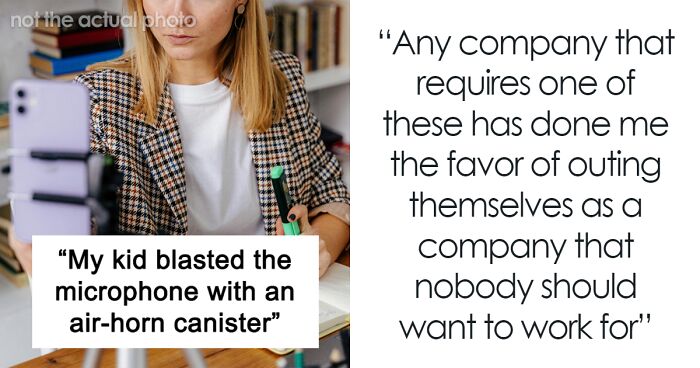

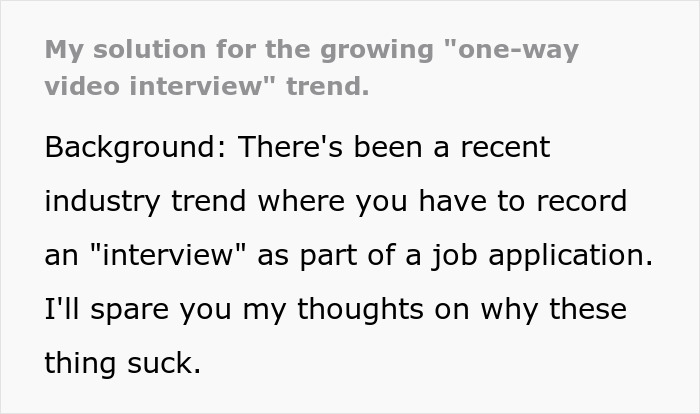
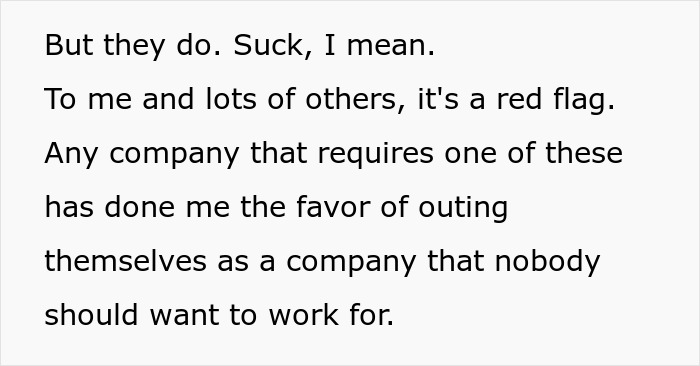
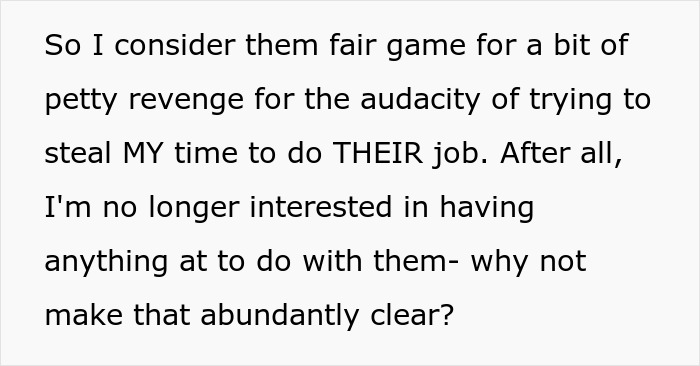
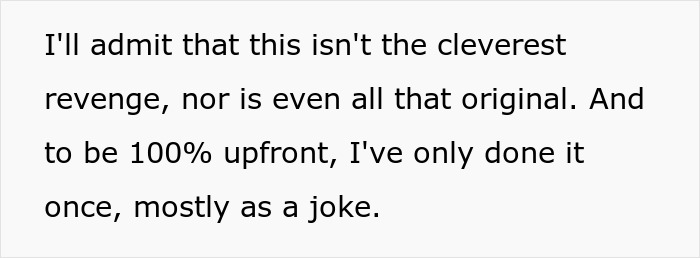
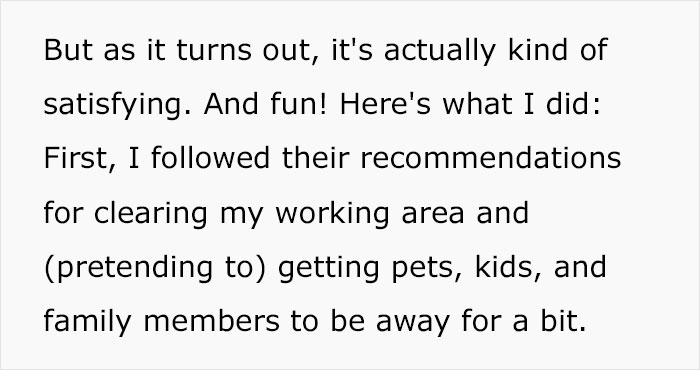

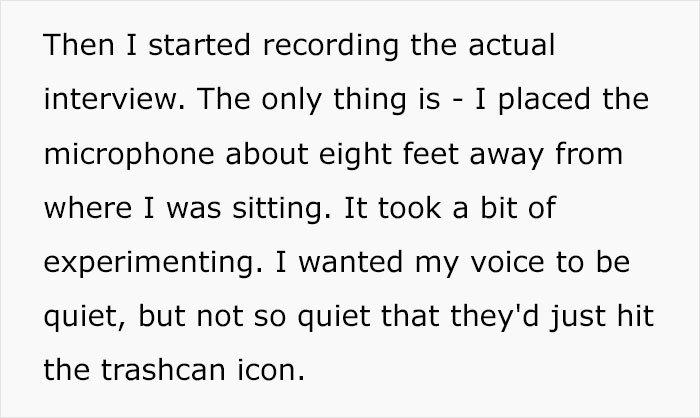
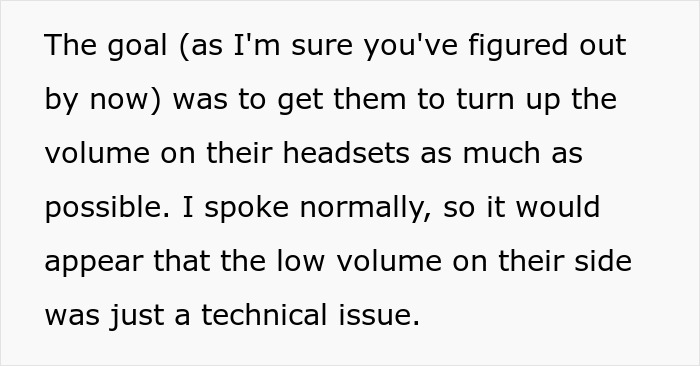
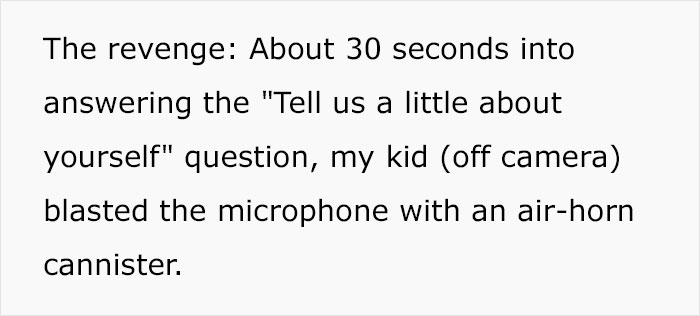
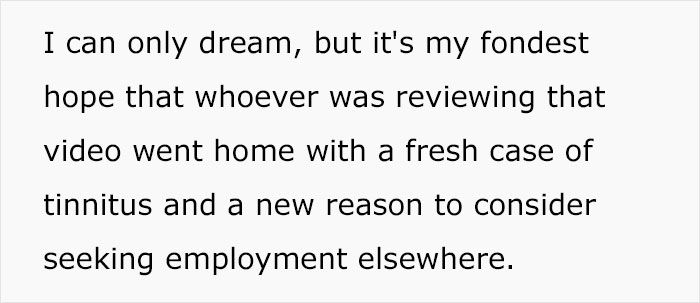


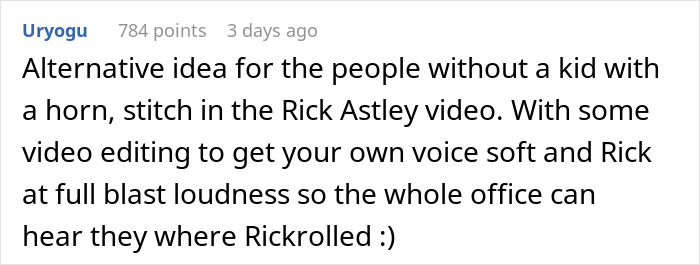

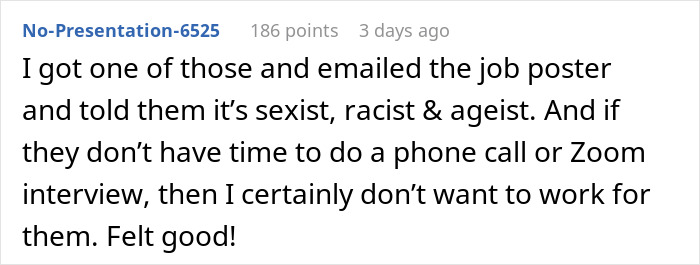
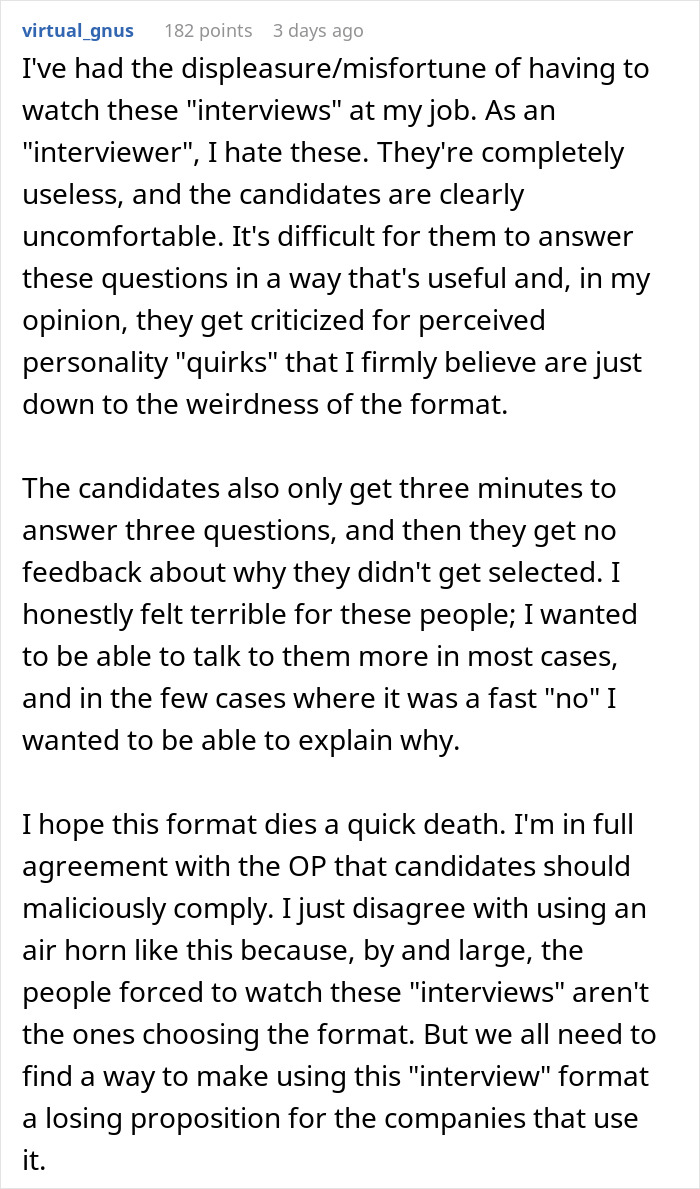
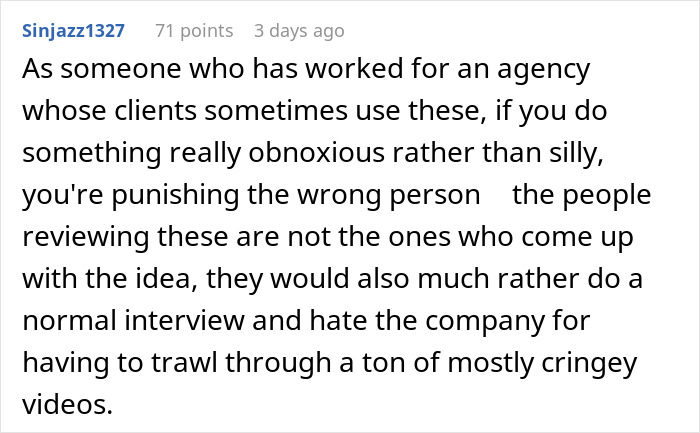





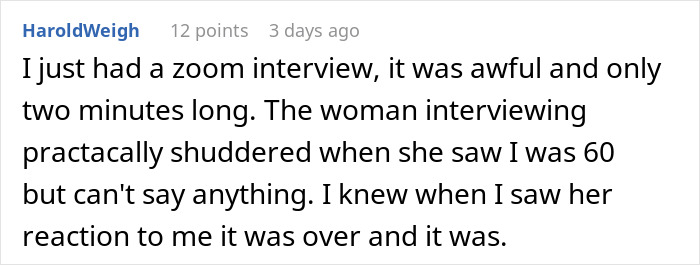




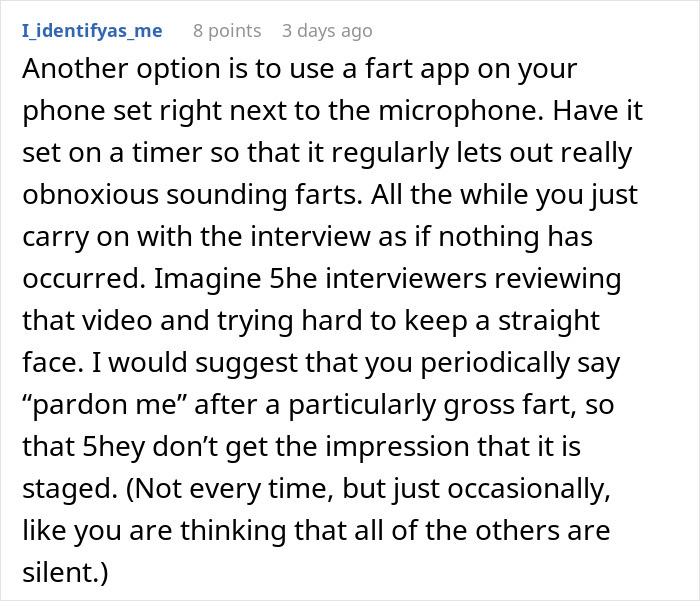
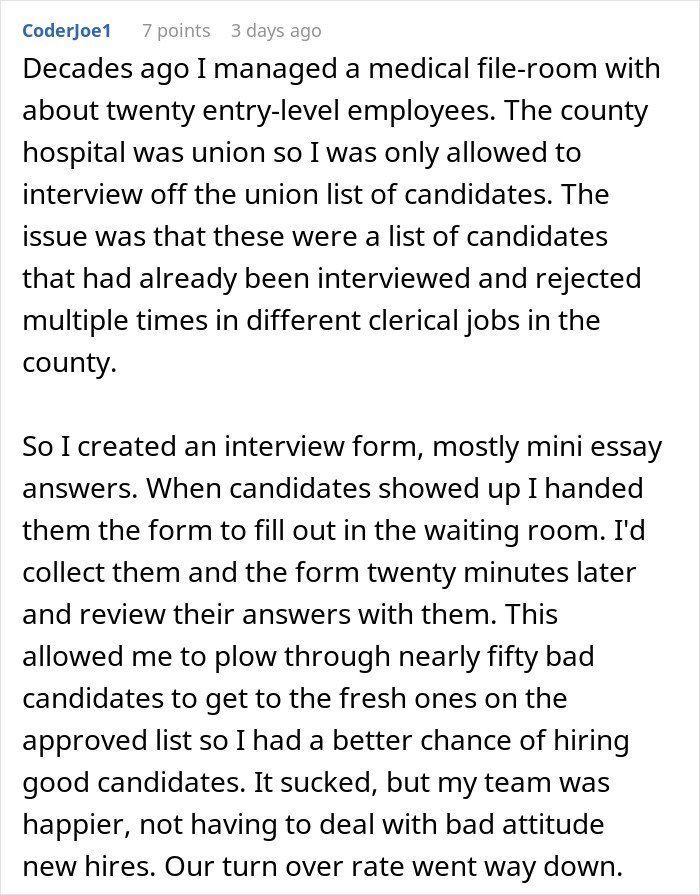
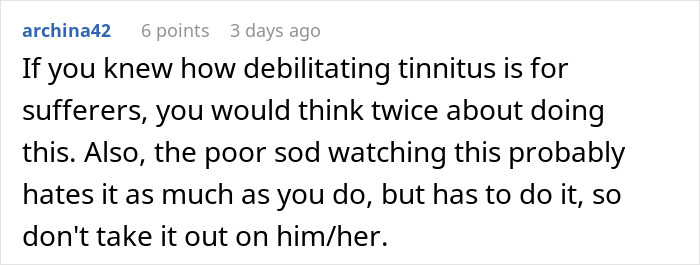
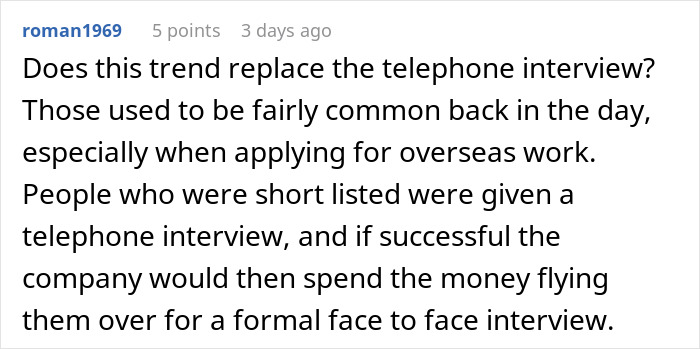

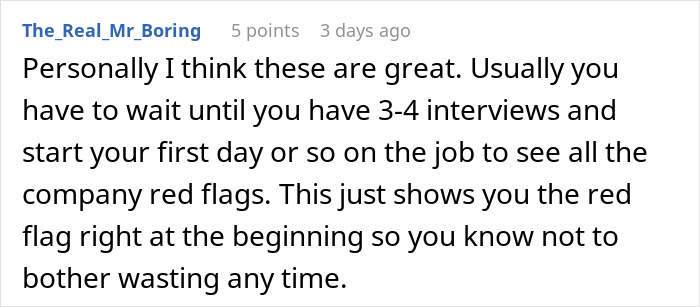














































21
28